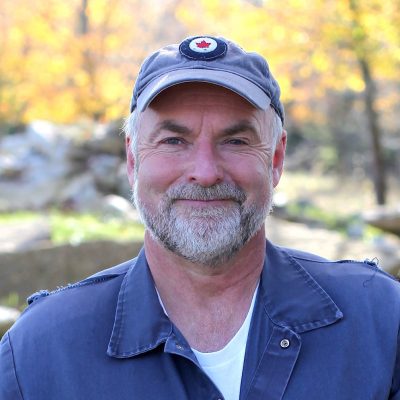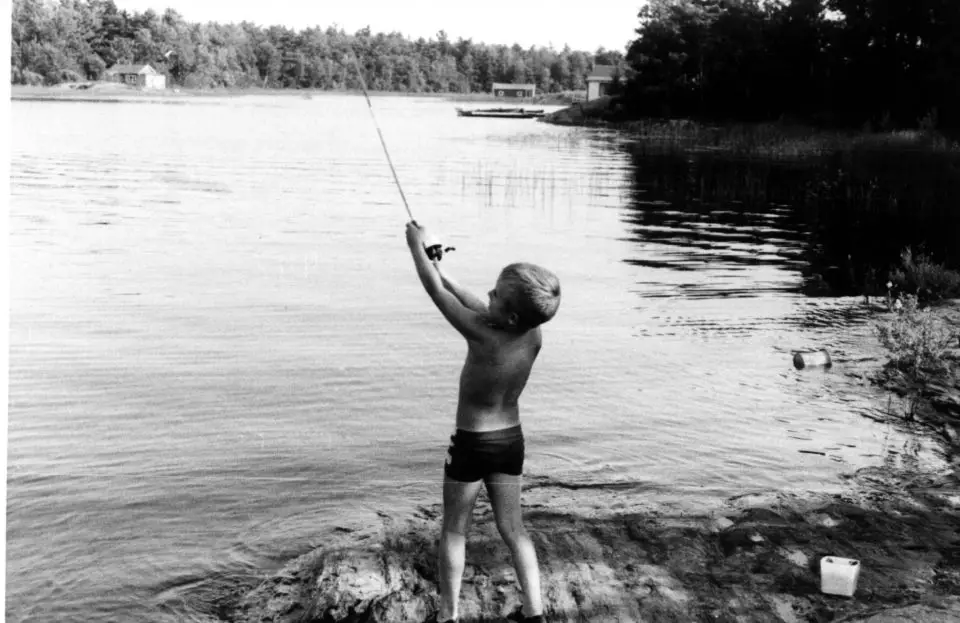
Sometimes little things make big differences, especially when those little things happen when you’re young. I grew up in suburbia most of the time, and the main reason I live on Manitoulin Island, Canada, work with wood, stone and soil, and love my rural life is because of great childhood experiences I had at our lakeside family cottage. It was an old log building on the shores of Georgian Bay, Ontario, Canada, 3 hours drive from the city home where I grew up. Georgian Bay is one part of the Great Lakes that Canada and the US share, and when early explorers saw these waters they called them the “sweet water sea” because they were so big yet not salty. I remember the moment when I was 12 years old, as the waning days of summer brought their usual back-to-school anxiety, I wondered how I could live near water, trees, big skies and generous soil full-time. My life ever since has been a quest to find and live that life. In the photo above I’m 7 years old, doing what I did most summers growing up at the cottage. I’m so thankful for these times.
But the big choices I made to follow my dreams of rural living, beginning in 1985, meant that the cottage — a very humble family heirloom since 1926 — stopped being part of my life. I got busy building another version of the place where my young heart had found another happy place, more suited to full-time living. That said, the cottage is still very much part of who I am, and that’s something of a blessing and a burden.
The summers I spent at the lake as a boy led me to a wonderful relationship with my grandfather, to an appreciation of nature, a love of the smell of white pine trees, early experiences learning the joys of manual labour, and the urge to make a living for myself where pavement is a rare thing. And in a strange way, the cottage also led me away from itself. It’s kind of like a parent that way. Good parents work themselves out of a job. And in the case of the cottage, there was someone that came before me, and that someone has an unusual history.
The Roots of Personal History
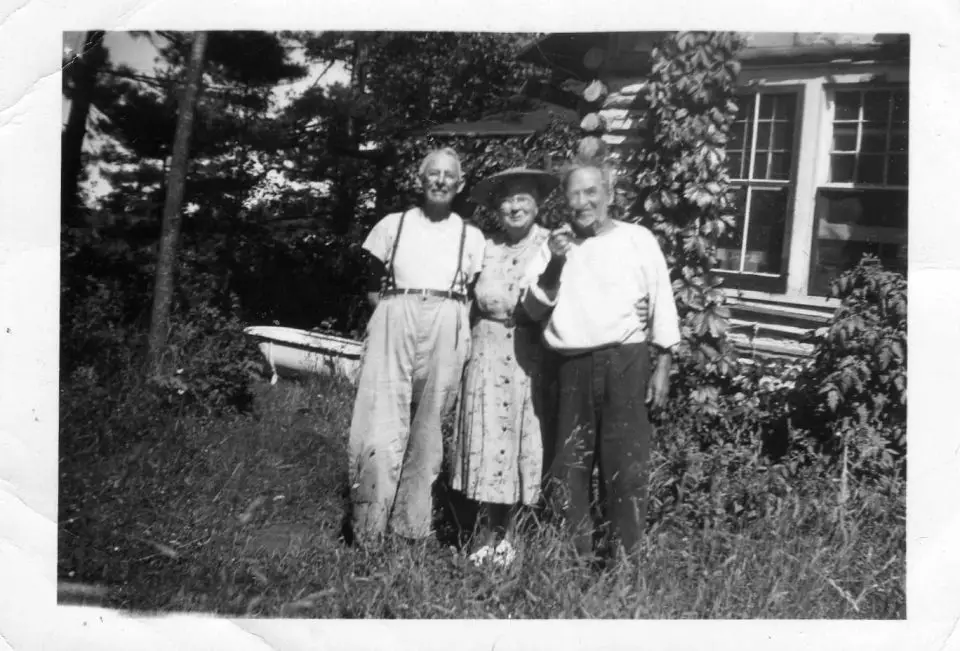
My cottage experiences gave me the temperament to live a rural life on Manitoulin Island — a more practical place than the cottage to raise kids in the countryside and to live year-round, and to grow things on fields. So I got everything that I needed from cottage life here on Manitoulin and more. That’s why the practical side of my brain eventually had to admit that there was no need to drive 5 hours to swim and fish when I could enjoy the same thing 10 minutes walk from my house. Logical, yes, but my heart still isn’t completely convinced that my family and I did the right thing in selling the cottage.
In many ways my heart still sits inside a boy casting for sunfish on the shores of Georgian Bay, though it’s been almost three decades since I’ve seen the place. No matter how hard you try to think of properties as investments, objects of prestige, or just plain shelter, doesn’t the emotional side eventually worm its way in? Homes and cottages are places where attachments grow and persist, often way beyond what makes sense. At least that’s the way with me.
Cottages Live Forever, But Not So Little Boys
In the summer of 1988 — the first summer in 18 years that I didn’t visit the cottage — a 50-year drought gripped all of North America. Do you remember it? Eight weeks without a drop of rain where we live. It even killed a few full-grown trees at the cottage, including a gnarled and quite rare apple tree that grew wild out of a rock crack just a few feet from the water’s edge, along the almost-soil-free shoreline of the Canadian Shield. It was a brave tree, and tough. It had probably sprouted from an apple core that washed ashore decades earlier, and it was the only apple tree I’ve ever seen growing wild in cottage country. I’d enjoyed fruit from that tree for years, and even though it would have been easy to keep it alive with buckets of lake water just a few feet away, I was somewhere else at the time, building a new dream. I didn’t even know the tree needed me.
When I heard that the apple tree had died, I felt like Jacky Paper in Puff’s sad dragon song. Worse, actually. Cottages live forever, but not so little boys. This was the moment that I first realized how I was growing away from what had been my very favourite place in the world (and still is, in my heart). You’d think I could have seen it coming, but I didn’t. We’re often not as smart as we think we are.
Sometimes it takes a while to come to terms with change. My family and I spent 8 years deciding to sell the cottage, weighing the practical fact that it was hardly used against the good memories that still lived there. And when the decision to sell was made final in 1996, I came to understand something that made the task easier.
Saying Farewell – A New Dream Awaits
I now see how issues like these go beyond practicality. They’re also about making room for others to enjoy a place and to build a relationship with it. What right do I have to hang on to a jewel, just to keep it buried? Somewhere out there was a family — with young children and grand kids as it turned out — whose lives would be enriched by an attachment to the rocky shoreline, the big white pine trees and the fishing point that still means so much to me. The last thing we did for the cottage was to hand it over to the very best kind of new owners, along with some of the old stories to help them grow new roots where our old ones left off. It was the least I could do for the place.
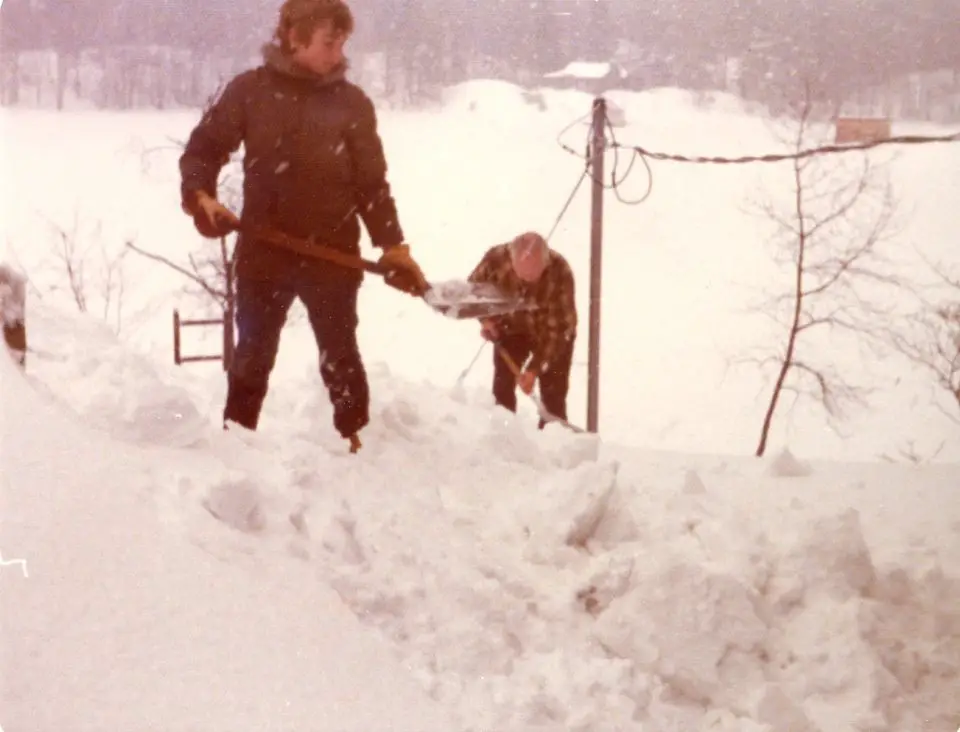
My last experience at the cottage was strange. I was driving through the area, on my way to Manitoulin, so I turned off the highway and drove the 5 miles in to see the place and to say hello to the new owners. The door was open, and the place was lived in, but no one was home. Perhaps they were out on a boat for a day of fishing. I took a swim from my favourite point, breathed the delicious aroma of a healthy lake, then lay on my favourite granite rock in the sun, basking like one of the big turtles I was never quite able to catch as a boy. A couple of hours went by with no owners around, so I snuck inside after a second quick dip in the lake. The place was neat, it was filled with other people’s summer stuff, but I could tell it was loved. I walked out, and climbed into my truck with that one last memory.
Is Loving Worth It?
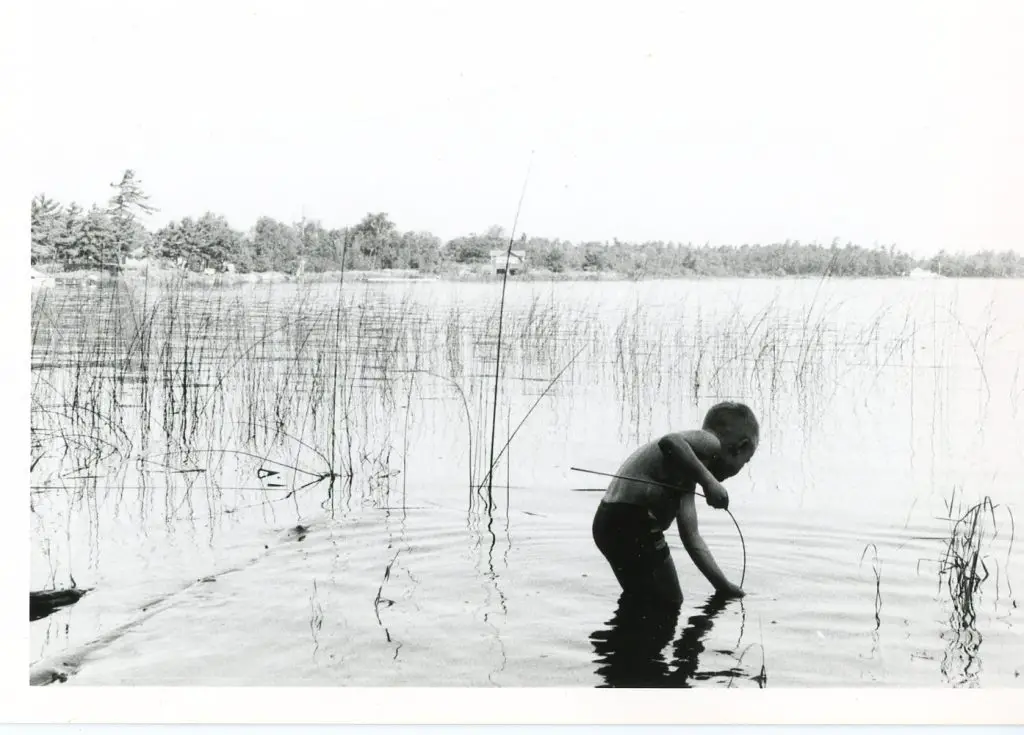
Have you ever tried convincing yourself that good memories aren’t worth the cost? That you’d be better off without ever loving anything, and in that way never finding you have to say goodbye, with all the pain that comes with that? It’s tempting sometimes. Think of the love you had for a great dog who is gone now. Or maybe that special relationship you had with a kindred spirit where your time together is always smooth, always harmonious? The deeper a connection you have with someone or some thing, the harder it is when it ends. And end it will. Bidding fond goodbyes is inevitable in this broken and fallen world we find ourselves in, and the fact that I’m now 62 years old reminds me of that fact. But I can’t complain. All the bitter-sweet things in my heart, including the cottage, special people, great dogs, just mean that I’ve loved something enough to wish it could go on forever. I’ve experienced something that’s good enough to enter into my personal, “good-old-days hall of fame”. And I don’t suppose life gets much better than that on this side of eternity, does it? And perhaps someday all the longing for true permanence and connection will finally appear.
C.S. Lewis wrote: ““If I find in myself a desire which no experience in this world can satisfy, the most probable explanation is that I was made for another world.” I suspect this applies to the impermanence that we all have to experience, too.
Do you have a favourite place in your heart? Is it still part of your life? A memory only? Let me know what you think at [email protected]





